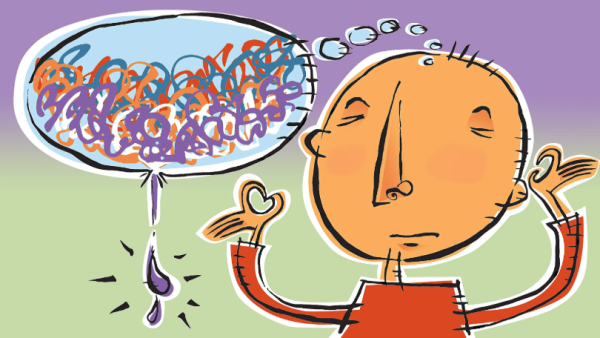These days, most people tend to live their lives on autopilot without ever realizing it. You go to work, you come back home, you watch TV or scroll through some social media apps, and go to bed. The only real thoughts that happen tend to be worrying about the future or stressing over things that happened in the past. Wouldn’t you rather live a fulfilling life where you can appreciate the things you have, living in the present moment, and experiencing inner peace? Mindfulness is how you can achieve that kind of life, and this article explores how you can work on achieving it.
Understanding Mindfulness
Mindfulness is a lifestyle in which you focus on being fully present in the moment. You accept things as they come, whether they are feelings, emotions, sensations, or anything else, without any judgment. Rather than living life on autopilot or obsessing over things, which is something the WellBeing Liven platform warns you against, you find a middle ground- Taking in the sights, sounds, sensations, and thoughts as they come, and letting them pass once you’ve experienced them fully. You aren’t critical of these things; you simply accept them. In doing so, you can maintain a moment-by-moment awareness of your current experience and appreciate it for all it has to offer.

How Does Mindfulness Work?
Stress wreaks havoc on your body and mind, and mindfulness helps bring about a sense of calm. That means mindfulness practices activate the parasympathetic nervous system, which helps you relax. When you’re faced with deadlines, obligations, and other stressors, your body will produce stress hormones. It produces epinephrine to give you the energy to take on things right away, and cortisol, which is intended for long-term effects.
However, being chronically stressed can lead to a higher baseline of cortisol. The problem with having raised cortisol is that it can lead to the following issues:
- Exacerbated symptoms of anxiety and depression
- High blood pressure
- Greater risk of cardiovascular diseases
- Hormone imbalance and lowered libido
- Gastrointestinal disorders
Mindfulness helps lower the amount of cortisol in your body. In the long term, this reduces all of the symptoms of chronic high levels of cortisol.
How Does Mindfulness Benefit You?
We’ve explored the science behind how mindfulness benefits you, but we haven’t gone over the actual benefits themselves! Let’s take a look at some of the many ways in which mindfulness can enhance your life:
- Reduced stress: Through the mantra of being engaged in the present moment without judgment of the thoughts, feelings, and sensations you’re experiencing, you’ll be able to avoid getting caught up in anxiety-inducing thoughts and worries. This helps prevent rumination and worry, reducing stress.
- Clarity of mind: Mindfulness helps improve your focus. By helping you be more concentrated, you’ll be more productive. You’ll even be able to approach problems from different perspectives.
- Enhanced emotional regulation: Mindfulness helps you get in tune with your emotions. This helps you develop a greater understanding of your emotions and what triggers them, allowing you to better retain control over them. You’ll be able to avoid impulsive responses in heated moments.
- Improved relationships: Mindfulness leads to a greater sense of empathy, which will improve all of your relationships. Aside from that, your ability to be truly present in conversations, where you give a person your undivided attention, understand their side of things, and the kindness you show will help foster stronger relationships.
- Better self-awareness: Through mindfulness, you’ll gain a better understanding of your own thoughts, feelings, and emotions. This will help you grow, make better choices, and live a life where you’re true to yourself.

Incorporating Mindfulness Into Your Daily Life
There are plenty of exercises you can do to practice mindfulness. However, before we get into that, let’s explore everyday mindfulness. Mindfulness is something that should be present throughout your day. It may sound exhausting to start, but it’ll quickly become like second nature. After all, it’s simply the practice of not taking things for granted.
You can implement mindfulness into your daily life just by appreciating the things around you and truly feeling everything you do. When you have a meal, savor every bite so you appreciate the flavor and texture. When you take a walk, concentrate on how the earth feels under your feet, how the birdsong sounds, and how the air feels on your skin. You can implement mindfulness into your breathing, your work, and just about everything else. That said, here are some exercises you can do to practice mindfulness:
- Breathing exercises: Exercises like the physiological sigh, diaphragmatic breathing, and alternate nostril breathing are great to practice mindfulness with. Simply sit in a quiet, comfortable room and focus on your breathing as you follow the steps for each of the breathing exercises listed out on the Liven app. Your mind may wander, and when it does, redirect it back to your breathing.
- Body Scan Meditation: This meditation method requires you to lie down comfortably and systematically focus on different parts of your body as you notice different sensations. You have to let go of any judgment you may have, and relax each body part as you go through them.
Conclusion
When a million things demand your attention every day, it’s easy to forget to live in the present moment. Liven tries to remind you about the benefits of mindfulness, and how easy it is to incorporate mindfulness in your daily life. The benefits are simply too many to pass on, and the positive impact it can have on your life in the long term is worth the 15-30 minutes daily.

